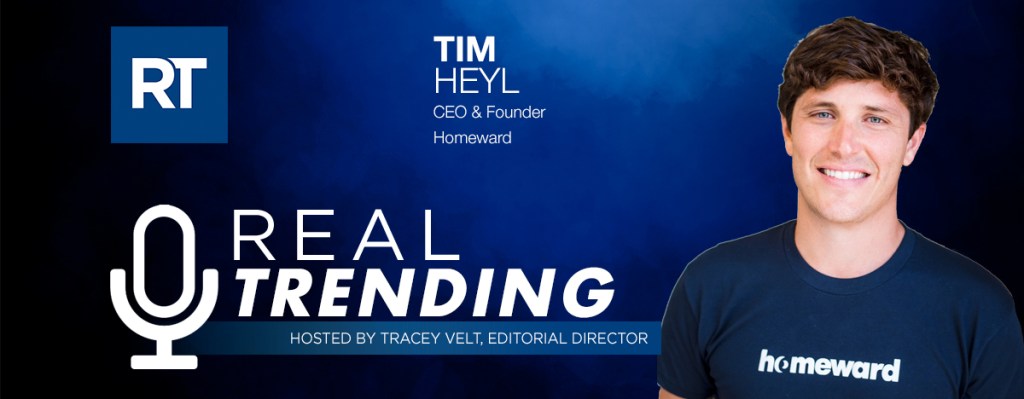Today’s RealTrending features Tim Heyl, founder of Homeward and of The Heyl Group of Keller Williams Realty in Austin. The Heyl Group is ranked number two large team by transaction sides and number five by sales volume in the 2022 RealTrends, The Thousand rankings.
Heyl discusses the new financing options for consumers, why teams aren’t competition for brokers and the innovation in the real estate industry.
Tracey Velt: You started a team and found a ton of success with that. You then bought a title company, home insurance business, mortgage business — Tell me how that evolved into your company today.
Tim Heyl: In about 2018, there was a lot of innovation on the rise with Opendoor and Offerpad and a lot of the iBuyers. It felt like it was the first real wave of innovation that I had seen since Zillow, Trulia, Redfin 15 years prior.
In Austin, I saw a company like Opendoor having more home sellers reach out to them and say, “Can you come to my house and talk to me?,” than any real estate agent or team out there. And I thought, “Wait a minute. They’re doing something right, better than all of us here.”
And what they were doing is they were bringing a new value proposition to the table — not completely new. It’s not like real estate agents haven’t been offering something similar for a long time with guaranteed sale or ‘what’s my home worth’ home valuations. But, Opendoor brought a consumer-oriented experience that said, “Click a button; get a cash offer on your house at close to full market value.”
Every day, I’d wake up and think about strategies to generate more leads, more business, get more referrals, and I tried lots of different things. But in 2018, I realized that if you change the message, you can change everything.
Unique value propositions, or solving problems that are clearly out there, if you can do that, you can rise above the noise and make a really big difference. And that’s what I set out to do with Homeward.
Tracey Velt: What do you think brokers get “wrong” about teams?
Tim Heyl: Sometimes brokerages and teams blur together. In pure form, brokerages and teams are both small businesses. The main difference is in their growth models. A brokerage grows by recruiting agents and a team grows by signing up home buyers and sellers. One is business-to-business and one is direct-to-consumer, so I think brokerages should think about two things about a team. Number one, good teams are typically more profitable than good brokerages. Number two, teams aren’t competition to a brokerage. If I were a brokerage owner, I might consider shifting my model and becoming a team, especially if I wasn’t making a lot of money as a brokerage.

